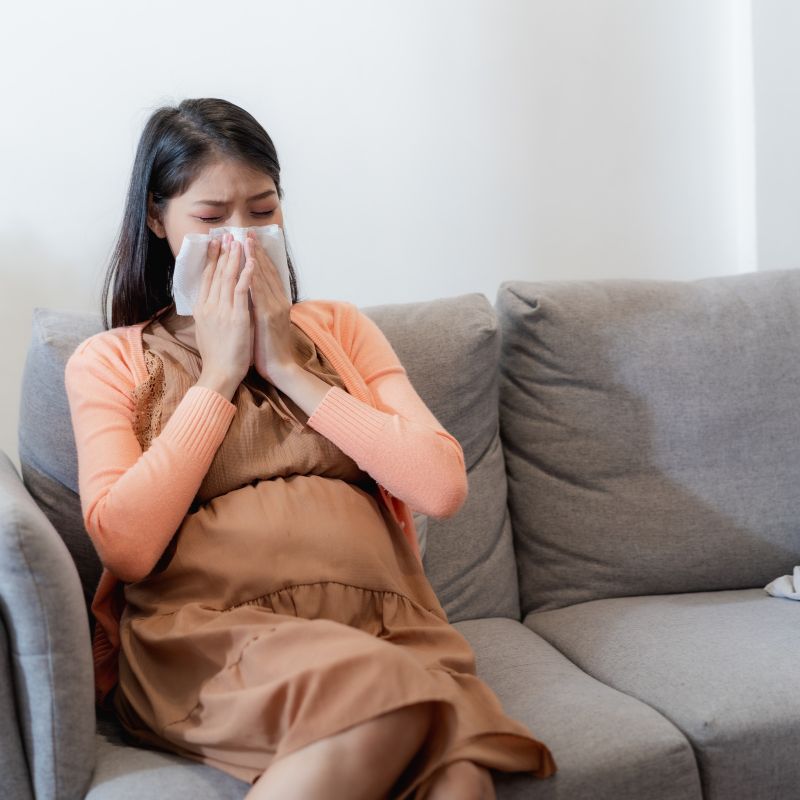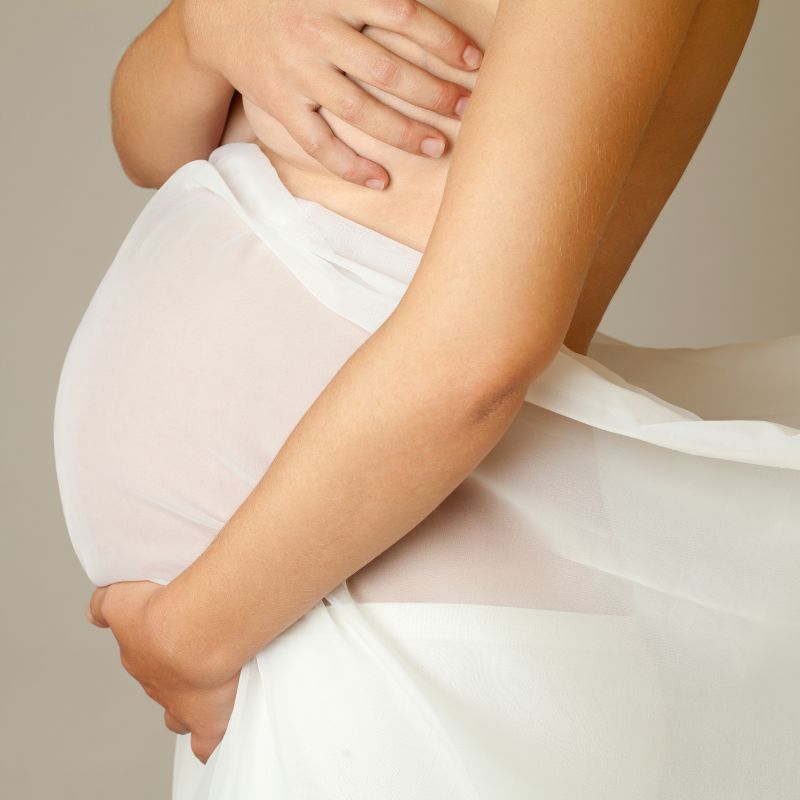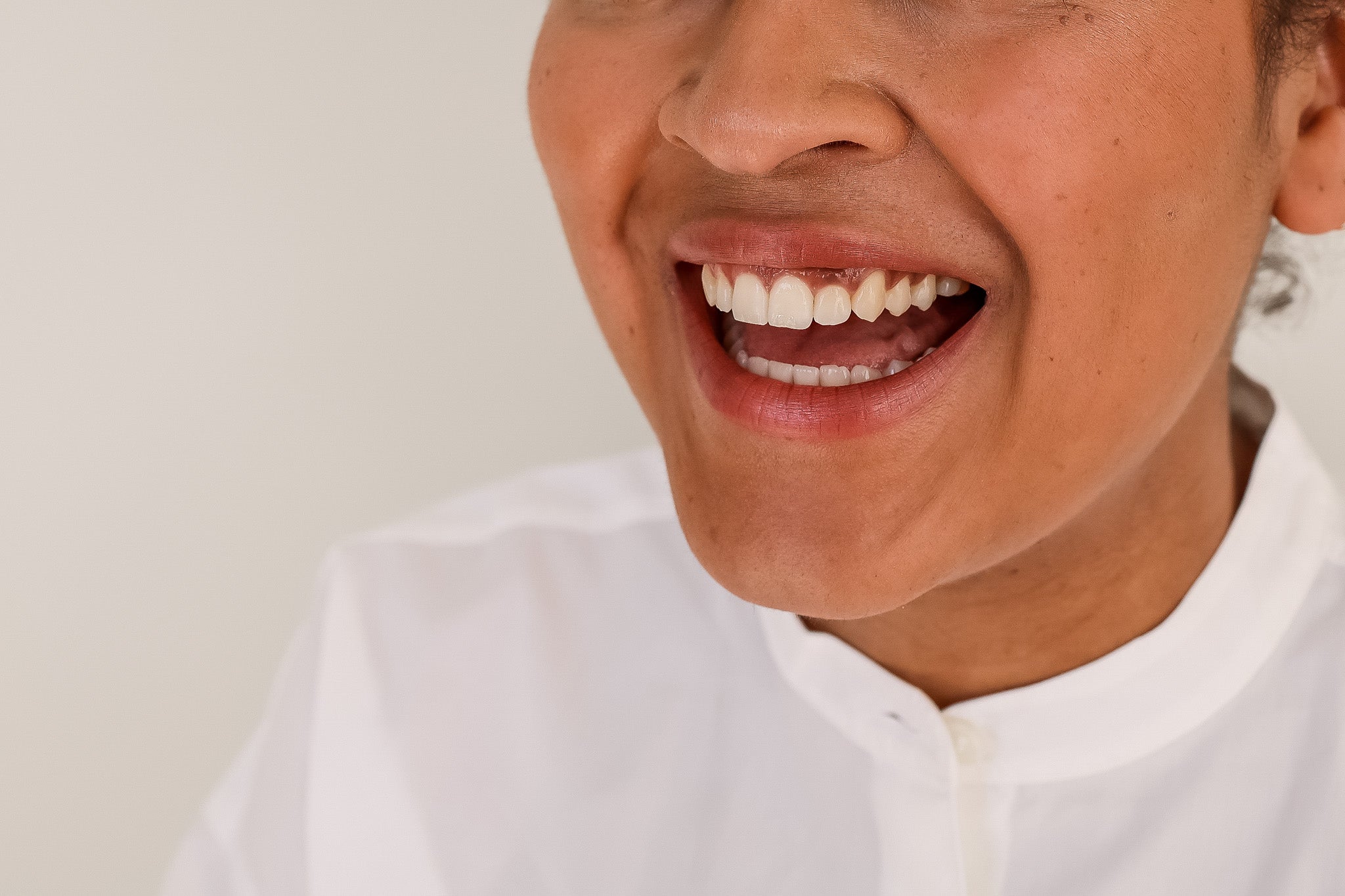Pregnant and Allergic to Pollen

For those who are pregnant and allergic to pollen, it can both improve or worsen during pregnancy. As the immune system changes, some may find their allergy improves, while others feel that pregnancy just makes it even harder. It is also not uncommon to have had an allergy before pregnancy that now flares up. Just because you are pregnant, you shouldn't have to feel bad from your pollen allergy; there are medications that are safe to use during pregnancy and breastfeeding!
Pollen medication during pregnancy and breastfeeding
Can you take medication for pollen during pregnancy or while breastfeeding? This is a question many ask, and many choose to either reduce their medication or stop using it altogether. But, is that what you should do? Today, there is solid research within asthma and allergy medicine that shows that the medications are safe to use both during pregnancy and breastfeeding. On the contrary, it is important not to stop taking your medications to ensure both baby and mother are as healthy as possible.
Which pollen medication can you take during pregnancy?
As always, it is important to consult your midwife or doctor to ensure that the medications you are using are safe. However, in general, over-the-counter nasal sprays containing levocabastine are usually permissible. If that doesn't help, there are also over-the-counter nasal sprays with corticosteroids containing budesonide or mometasone, which can be good alternatives. Does nasal spray affect the baby? No, the corticosteroid acts locally and only a minimal amount enters the bloodstream, so using nasal spray during pregnancy does not affect the fetus in the womb or breastfeeding children.
Eye drops that work when you are pregnant
Runny or itchy eyes are common issues when you have a pollen allergy. If you are pregnant and allergic to pollen, you can safely use over-the-counter eye drops containing sodium cromoglicate or levocabastine.
Does pollen allergy get worse when you are pregnant?
Many symptoms of pollen allergy resemble those that can occur due to pregnancy. It is common to have a stuffy nose when pregnant because the mucous membranes swell, and you may also feel more breathless than before. Whether it gets worse or not is very individual since the immune system changes during pregnancy.
Allergy tablets during pregnancy
Some use allergy tablets for pollen allergy, and it is actually perfectly fine to continue using these during pregnancy and the breastfeeding period, unless your doctor has advised otherwise. Antihistamine tablets containing loratadine, desloratadine, or cetirizine have been used by a large number of pregnant and breastfeeding women, and there is no evidence to suggest that they would harm the baby. The package inserts often state that they are not recommended during pregnancy and breastfeeding, but according to information from the Swedish Medical Products Agency and Janusinfo, this is because the package inserts have not been updated (Source: https://www.doktorn.com/sjukdomar/pollenallergi-under-graviditet-och-amning/).
As always, however, we still recommend that you consult your midwife or doctor.
Can you undergo allergy vaccination during pregnancy?
Pollen allergy is the most common form of allergy, and some find relief through so-called allergy vaccination (hyposensitization). The vaccination process can take between three and five years to complete, and it is not recommended to start the treatment during pregnancy or breastfeeding. However, if you have already started your vaccination before becoming pregnant, you can most likely continue with the injections. Consult your doctor or midwife for more information about what applies to you and your allergy vaccination.
Common symptoms of pollen allergy
Itchy, runny eyes
Sneezing
Itchy throat
Itchy skin
Runny nose
Nasal congestion – Nasal congestion is a very common symptom during pregnancy, even without any allergies. If you haven't had an allergy before, it doesn't necessarily mean that you are allergic just because you have developed it during pregnancy. Usually, nasal congestion starts to show in the second trimester, and if it is due to pregnancy rhinitis, it disappears shortly after the pregnancy ends.
If your symptoms are very noticeable and problematic in your daily life, they may be due to an allergy. If you are unsure, it is best to talk to your doctor who can help you determine whether it is an allergy or "just" pregnancy symptoms.
5 ways to manage pollen allergy during pregnancy
There are things you can do to manage your pollen allergy while pregnant:
- Avoid exposure to pollen. Keep track of pollen reports and try to stay indoors when pollen levels are high. You can also use an air purifier indoors to further reduce exposure.
- Medication. Talk to your doctor about which allergy medications are safe to use during pregnancy. There are several pollen medications that are safe to use when you are pregnant and breastfeeding.
- Rinse your nose. Use a saline solution to rinse your nose and reduce irritation. This is a safe and effective way to relieve nasal congestion during pregnancy.
- Open blocked nasal passages with steam. If you have severe nasal congestion, you can also try inhaling steam from a warm shower or a bowl of hot water.
- Sleep with your head elevated. This can facilitate breathing and reduce nasal congestion during the night.
- Tags: Fakta Graviditet Ta hand om dig

